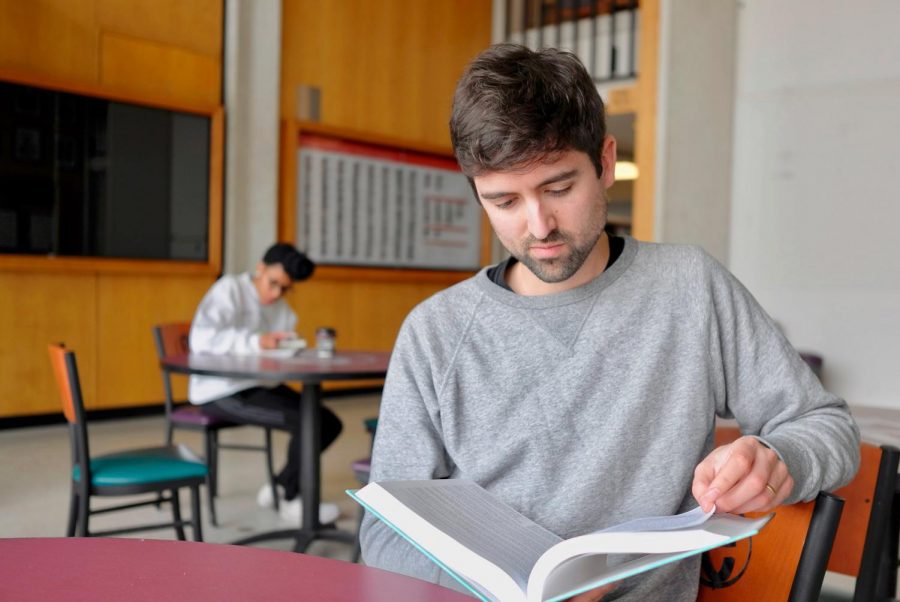UI study reveals energizing potential of willpower
Portrait of Christopher Napolitano, an assistant professor in Educational Psychology who does research on goals, self regulation, motivation and willpower.
Jan 31, 2018
Last updated on Feb. 1, 2018 at 08:19 a.m.
Assistant professor in educational psychology Christopher Napolitano is proving humans have control over their own willpower, according to a recent study.
The three-year study shows willpower can either energize or exhaust a person depending on the perspective, Napolitano said. He worked on the study alongside Veronika Job, psychology professor at the University of Zurich.
“If you think that resisting temptations will exhaust you, it will. But if you think that resisting temptations or doing something that requires a lot of willpower energizes you, then that’s what it does,” Napolitano said.
Willpower is a basic human capacity that allows people to pursue long-term goals despite all possible short-term desires and distractions. It helps to not think about willpower as a limited resource, Job wrote in an email.
Get The Daily Illini in your inbox!
“This is a hard (task), and I don’t need a Snickers after this hard (task) that I’ve done. Instead, I can feel energized by (this task),” Napolitano said.
According to Job, recent studies suggest most people who are good at prioritizing their long-term goals over short-term distractions engage in strategies that help them avoid temptations.
“For example, learning in the library helps to avoid all sorts of distractions as it helps not to have ice cream in the fridge if one is on a diet,” Job wrote.
Napolitano addressed the importance of willpower in a college student’s life.
“Being a college student is tough. You have all of these temptations that take you away from what you’re here for which is learning, honing your craft, becoming a person who asks questions,” Napolitano said.
Promoting willpower among students is important, said Helen Neville, professor in educational psychology at the University.
“Give positive affirmations about one’s abilities … tell yourself, ‘I have the ability to complete these tasks in timely ways,’” Neville said.
Job said she had all the data on willpower theories collected in various projects over the last couple of years, and Napolitano had all the expertise on how to test scale invariance.
“The strength model says that your willpower, your self-control, is a depletable resource,” Napolitano said. “What Veronika’s research shows is that it’s not just a depletable resource; it’s what you think about it.”
Together, Napolitano and Job tested whether implementing positive emotions toward willpower worked the way it was supposed to, whether people answered in predictable ways and whether they could compare Americans and Europeans on this measure.
After working with over 1,100 Americans and 1,600 Europeans, Napolitano and Job found Americans are more likely to need rest after mentally taxing activities, whereas Europeans are more eager to get involved in the next activity.
“What you believe about willpower matters,” Napolitano said.






